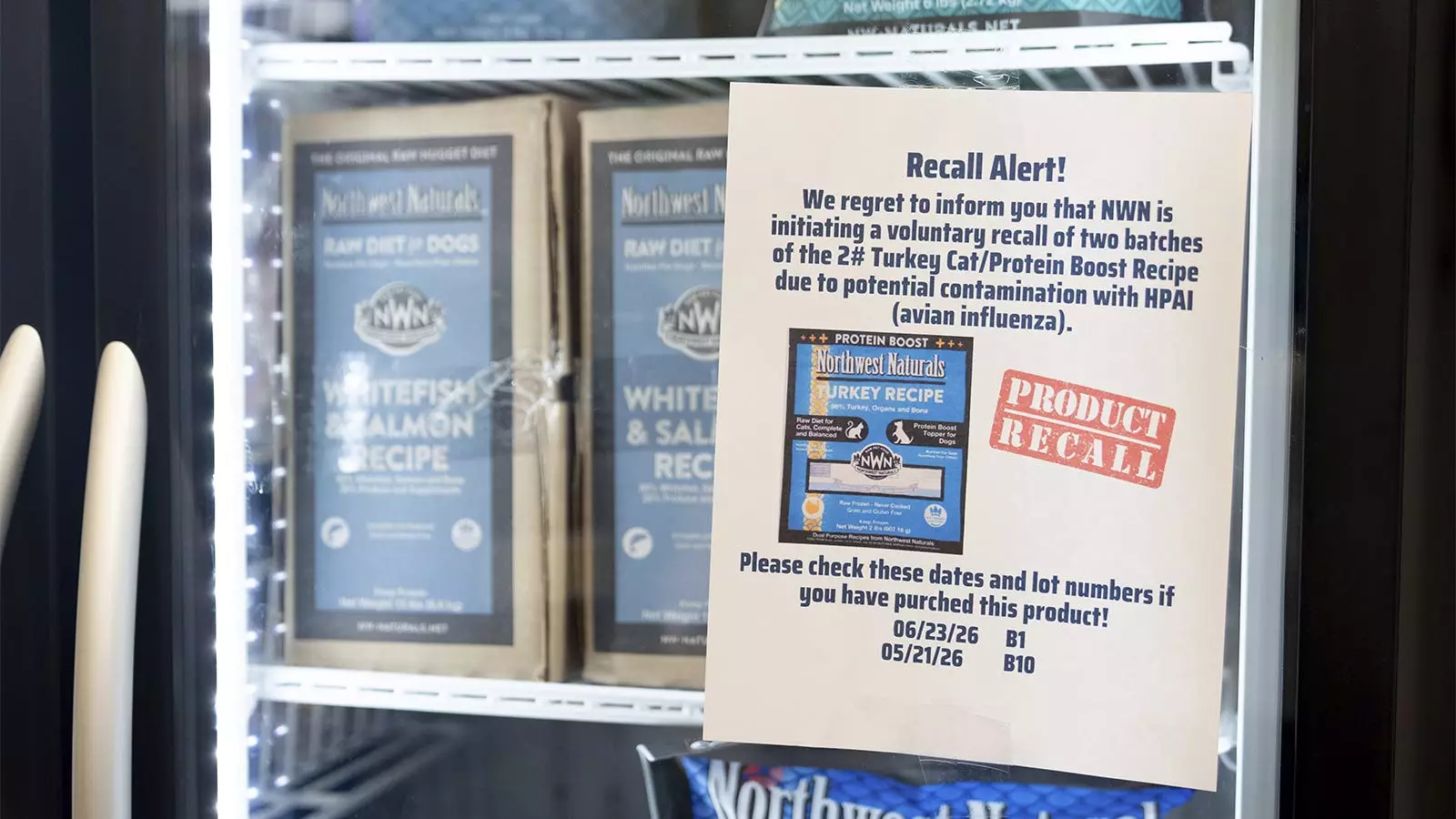The ongoing bird flu outbreak has sparked considerable concern not only among humans but also pet owners, particularly cat owners. Bird flu, scientifically referred to as avian influenza, has been endemic among various wild birds and domestic poultry for many years. The emergence of cases in other species, such as dairy cattle in the United States earlier this year, has raised alarm bells. As the virus has been linked to sporadic but concerning illnesses in people who work in animal husbandry, it is crucial for pet owners to scrutinize the safety of the food they offer their animals.
The recent death of a house cat in Oregon—traced back to pet food containing raw turkey that tested positive for the virus—exemplifies the growing intersection between avian influenza and pet safety. Health officials confirmed that the strain of the virus found in the cat matched that in the recalled cat food, igniting discussions about the risks posed to household pets.
Cats are notably vulnerable to the avian influenza A (H5N1) virus. While occurrences of the virus in pets remain rare, there have been significant instances involving domestic and feral cats, including barn cats and zoo animals. Not only can they contract bird flu from consuming infected poultry, but they can also be exposed to the disease through direct contact with sick or deceased birds.
The urgency surrounding the current situation is further stressed by reports from health departments investigating multiple cases of ill and deceased cats linked to contaminated food sources. Animals—especially those still in their natural hunting instincts—are at higher risk when they roam outdoors where they can encounter infected wildlife.
Veterinary experts emphasize the critical need for pet owners to ensure that their cats do not consume raw or unpasteurized foods that may harbor the bird flu virus. Dr. Michael Q. Bailey, a veterinary professional, underscores the risks associated with feeding raw meat and dairy, stating that cooking or pasteurizing these items effectively eliminates the pathogen. This precaution is vital not only for preventing bird flu but also for averting other foodborne illnesses that can affect pets.
Moreover, it remains essential for pet owners to store food properly and monitor any recalls or warnings issued regarding pet food products. The recent voluntary recall of Northwest Naturals’ raw frozen cat food—affecting various states and dated for consumption until 2026—serves as a reminder of the potential hazards tied to unprocessed pet food. Pet owners are encouraged to check the product labels and dispose of any items linked to recalls while seeking reimbursements from retailers.
Recognizing Symptoms and Taking Action
Understanding the symptoms of bird flu in cats is crucial for prompt action and care. Indicators such as loss of appetite, lethargy, fever, and unusual behaviors—like excessive hiding or sleepiness—should prompt an immediate consultation with a veterinarian. In severe cases, cats may display respiratory difficulties, eye discharge, and even neurological symptoms like tremors.
In the interest of safeguarding both pets and vulnerable individuals, including those with weakened immune systems, it is advisable to isolate sick animals promptly and seek veterinary guidance. Caring pet owners must remain vigilant and prioritize the wellbeing of their furry companions.
The threat of bird flu has extended beyond wildlife and poultry farms, permeating into the realm of pet ownership. The unfortunate incident in Oregon serves as a stark reminder of the interconnectedness of human, animal, and environmental health. Pet owners must adopt proactive measures—such as safe food practices and limiting outdoor exposure—to protect their cats from potentially life-threatening illnesses.
As we navigate these challenging times, the focus should remain on enhancing our awareness and responsibility as guardians of our beloved pets. They rely on us not just for love and companionship, but also for their health and safety. Staying informed and cautious can make all the difference in keeping our furry friends safe from the lurking shadows of avian influenza.


Leave a Reply